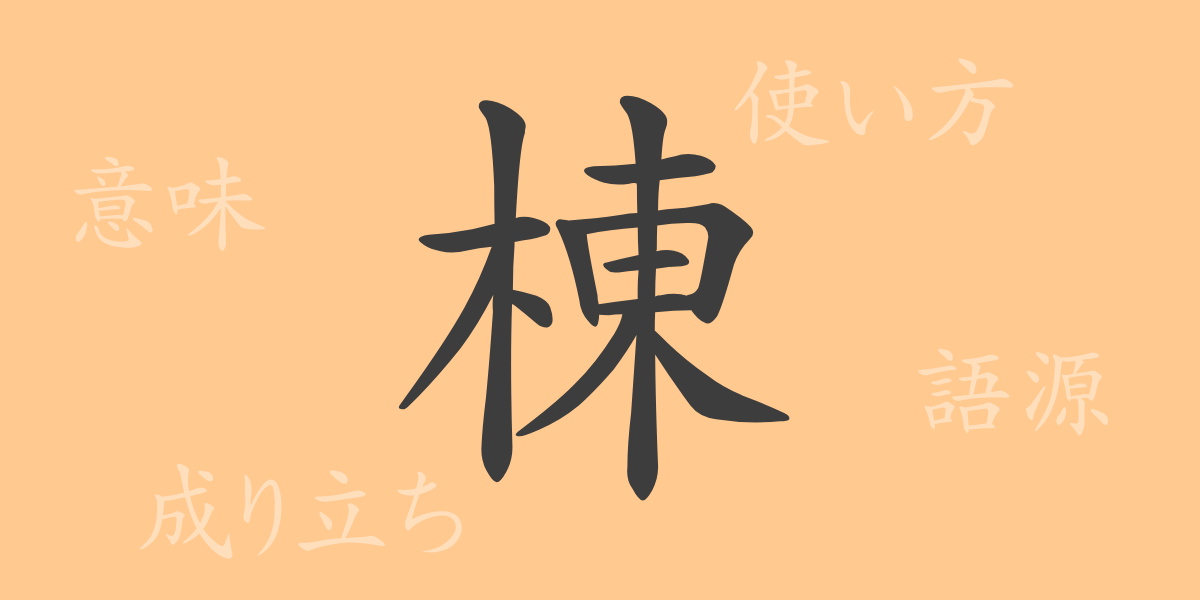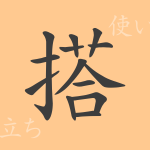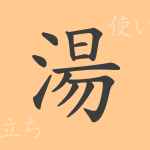The culture of Japanese characters is profound, with ‘棟 (トウ)’ being an everyday Kanji deeply rooted in daily life. From architecture to traditional practices, this article delves into the significance and use of ‘棟’, unpacking its origins and applications.
Origins of ‘棟 (トウ)’
The Kanji ‘棟’ has been used since ancient China and originally denoted the part of a building’s roof where the rafters come together. Signifying the highest part of a structure, it evolved to mean ‘apex’ or ‘topmost part’. In ancient Chinese society, where homes held significant status, ‘棟’ also symbolized families or lineages.
Meaning and Usage of ‘棟 (トウ)’
‘棟’ refers to the part of a roof where the rafters meet, i.e., the ridge or the highest point of a roof. Metaphorically, it is also used to describe the central figure or leader of a family or group, as in ‘一族の棟梁 (いちぞくのとうりょう)’. Additionally, ‘棟上げ (とうあげ)’ refers to a ceremony or celebration marking the completion of this crucial part of a building’s structure.
Reading, Stroke Count, and Radical of ‘棟 (トウ)’
Essential information about the Kanji ‘棟’ is as follows:
- Reading: On’yomi ‘トウ’, Kun’yomi ‘むね’ or ‘むな-‘.
- Stroke Count: 12 strokes.
- Radical: Wood (きへん).
Phrases, Idioms, and Proverbs Using ‘棟 (トウ)’
‘棟’ appears in many idioms and proverbs, playing a significant role in the Japanese language. For example, ‘棟梁 (とうりょう)’ refers to a leader of a group or organization, and ‘棟上げ’ denotes a celebration when a building’s construction reaches a significant phase. Another term, ‘棟札 (とうさつ)’, is a plaque listing a building’s construction year and owner, often found on historical structures.
Conclusion on ‘棟 (トウ)’
The Kanji ‘棟’ not only designates a part of a building but also carries deep significance in Japanese culture and tradition. Its applications range from architecture to representing familial symbols and are widespread in various idioms and phrases. Understanding the rich history and meanings of this single character enhances the appreciation of the depth of the Japanese language.

























